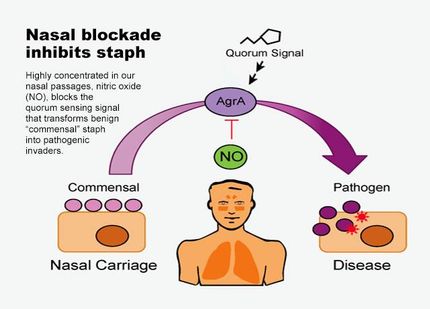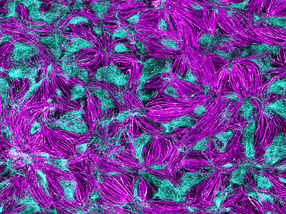Basilea submits New Drug Application for anti-MRSA Broad-spectrum Cephalosporin to U.S. Authorities
Basilea Pharmaceutica Ltd. announced the submission of a New Drug Application (NDA) to the U.S. food and Drug Administration (FDA) for ceftobiprole by its co-development partner Johnson & Johnson Pharmaceutical Research and Development, L.L.C. This submission is for the use of ceftobiprole in the treatment of complicated skin and skin structure infections (cSSSI) including diabetic foot infections. Submissions to other health authorities around the world will follow. Ceftobiprole is a novel anti-MRSA broad-spectrum cephalosporin antibiotic.
This submission of ceftobiprole for the treatment of complicated skin and skin structure infections includes the data from two pivotal phase III trials (STRAUSS 1 and STRAUSS 2). These trials comprise data from over 1600 patients including those with diabetic foot infections caused by Gram-negative and Gram-positive pathogens and with methicillin-resistant Staphylococcus aureus (MRSA) infections. In both of these large, multinational, double-blind, randomized phase III clinical studies, ceftobiprole was effective, demonstrated by achievement of the non-inferiority endpoint to single drug or two-drug combination comparators, respectively. Ceftobiprole was well tolerated with a safety profile consistent with the cephalosporin class of antibiotics.
The NDA filing triggers a milestone payment of approximately CHF 24 million from Cilag GmbH International, the Johnson & Johnson company with which ceftobiprole is being developed through an exclusive worldwide collaboration.
Ceftobiprole is currently in clinical phase III testing in hospital-acquired pneumonia (HAP) including ventilator-associated pneumonia (VAP) and in hospitalized patients with community-acquired pneumonia (CAP) with anticipated completion in the second half of the year.
Ceftobiprole (BAL5788), Basilea's lead antibacterial product, is the first of a new class of broad-spectrum anti-MSRA cephalosporin antibiotics. It is specially designed to bind the penicillin-resistant targets in many Gram-positive cocci, resulting in potent bactericidal activity towards methicillin-resistant Staphylococcus aureus (MRSA) and penicillin-resistant Streptococcus pneumoniae (PRSP). Ceftobiprole has demonstrated a broad-spectrum profile targeting other Gram-positive as well as Gram-negative pathogens. In addition it has shown a low potential to select resistance in vitro.
Other news from the department research and development

Get the life science industry in your inbox
From now on, don't miss a thing: Our newsletter for biotechnology, pharma and life sciences brings you up to date every Tuesday and Thursday. The latest industry news, product highlights and innovations - compact and easy to understand in your inbox. Researched by us so you don't have to.























































